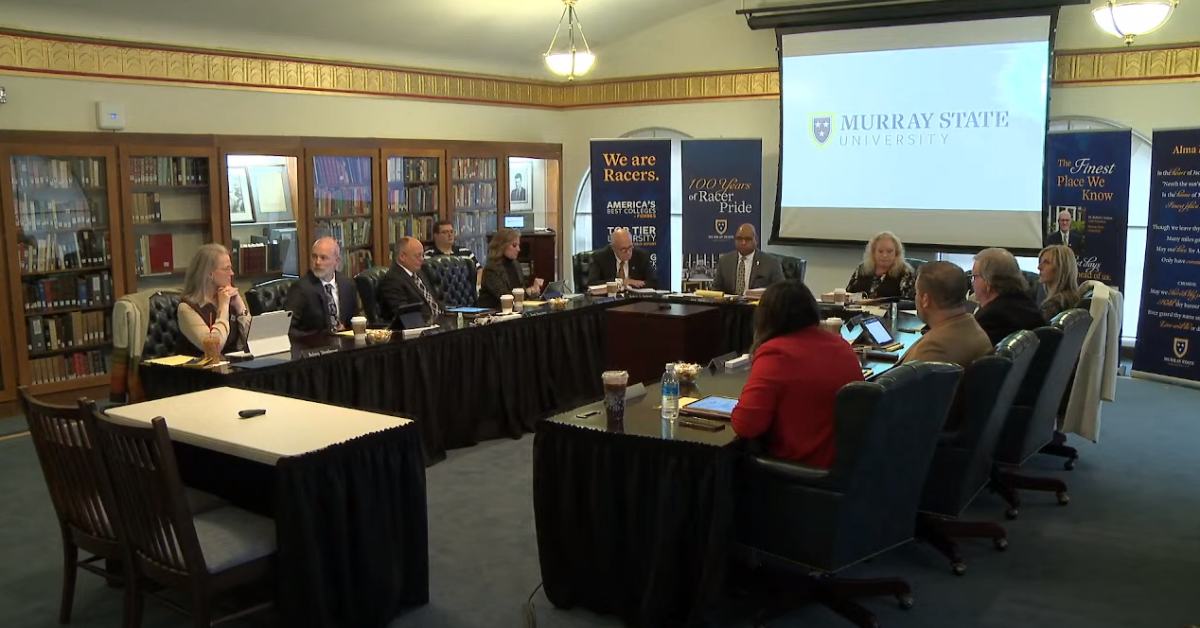With College Courts set to be demolished this week, the Board of Regents voted to pursue the purchase of Station Seventy-Four for $16.5 million.
During the board meeting Friday, University President Bob Jackson said the condition of College Courts is deteriorating.
“Replacing College Courts will save us six figures of deferred maintenance and improvements money each year,” Jackson said. “This ongoing maintenance that we put into those facilities [are] 60 plus years old.”
Station Seventy-Four will provide more space for students, with 268 beds available while College Courts only had 264.
Jackson said this new location would save the University from building a new residential college.
“It would avoid major construction timing issues that we’ve run into in the past, major construction costs that we deal with today and related other unknown risks,” Jackson said. “There’s a lot of unknown risks, we’ve learned post-pandemic, related to construction.”
The board authorized Jackson to enter negotiations for the purchase of the apartment complex, but purchase price is not to exceed $17.9 million.
Regent Thomas Waldrop abstained from voting because he owns property in the area.
Dan Lavit, executive director for the center for adult and regional education, presented a new campaign aimed at non-traditional students.
The Racers Finish initiative is a recruitment campaign designed to target adult learners who have earned credit at Murray State to return and finish their degree.
Currently, there are 611,023 people in the state who have some college credit but no degree.
“Nationally, college completion rates are declining,” Lavit said. “From a regional perspective, I’d say the greatest workforce development is not just attainment but the knowledge and upscaling of individuals who are more likely to live in and benefit communities that are current people who will stay in those communities.”
A part of this initiative is looking at students who “stopped out” after 60 or more credit hours were earned at the University. Lavit said these credits do not expire—for example, a student who came to the University in the ‘60s can come back to earn their degree.
The registrar’s office ran reports and found that, out of 1,050 students who had completed degree requirements, 30 are eligible for the associate’s degree and 15 are eligible for the bachelor’s. However, the degrees were not the ones in which those students started.
“The bachelor’s of integrated studies is degree programs designed specifically for returning adult students,” Lavit said. “It’s a unique program that students can earn credit for prior learning [and] recognizes learning that has occurred outside of the classroom.”
Jason Youngblood, executive director of facilities management, and Angela Lampe, associate director of facilities management, highlighted construction projects in progress or set to begin next semester.
Mein Bowl should be open by the start of the semester. Lampe said the final piece of equipment for Mein Bowl arrived last week.
A multi-phased fiber upgrade, which includes 11 miles of new fiber to be installed around campus, should be completed by the end of fiscal year 2027.
“It creates a loop around our campus, creates some redundancy for our networking folks to be able to provide if we were to have a fiber break or a fiber failure,” Youngblood said. “They have a back door to feed our campus.”
Facilities also demolished the theatre department’s costume shop, located on North 16th, but it was not said what the plans were for the lot.
The board also approved two new master’s programs in the College of Business: Master of Science in accountancy and analytics and Master of Science in economic analytics.
The next Board of Regents meeting is scheduled for March 1, 2024.





























































































